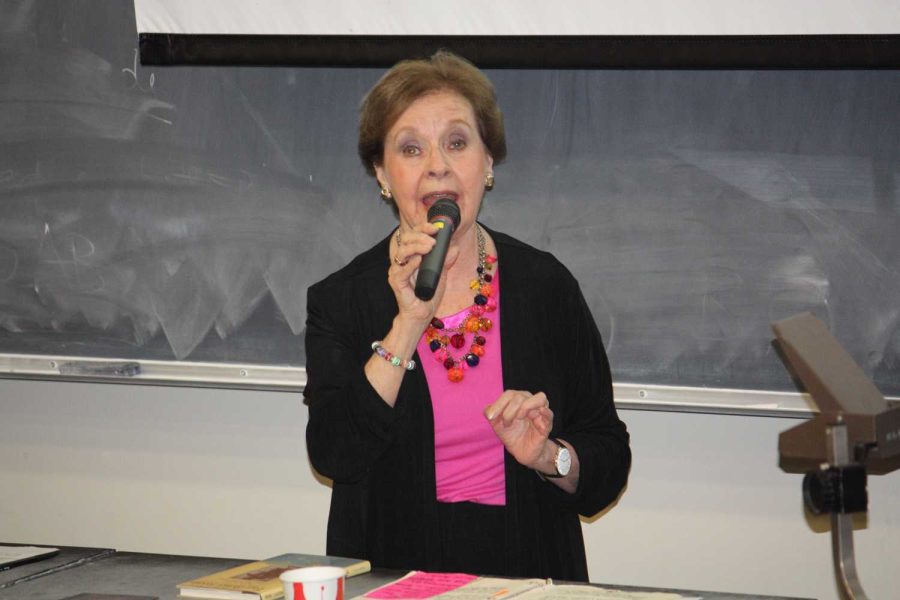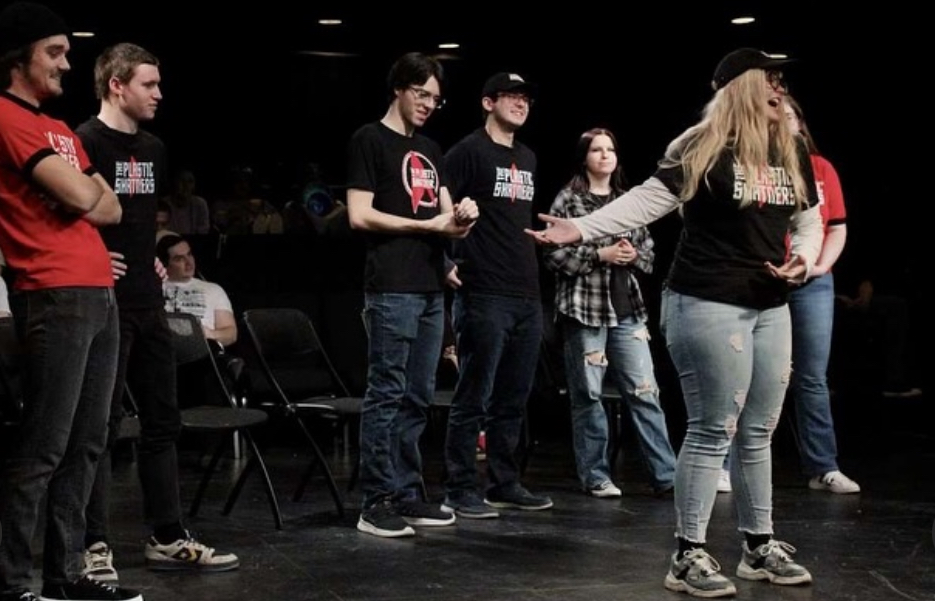When Marion Blumenthold Lazan was a child, the German Nazis turned her life of normality and happiness into a world she said was only survivable with hope and her Jewish faith.
The University and Jewish organization Hillel brought Lazan to campus to speak about her experiences living in concentration camps when she was in her youth during WWII.
Before the Nazis took power of Germany and much of the world, Lazan said she lived above her father’s shoe factory. Her life was pleasant until the German government made restrictions on the Jewish community.
“Jews were unable to do anything with non-Jews and we had specific hours we were able to grocery shop.”
Lazan said her father, a recipient of the Iron Cross in the German Army, was taken away for 11 days for being Jewish.
Sadie Farley, a freshman whose grandfather was in concentration camps, said she came to the lecture to hear the stories first hand.
“My grandfather died when I was younger and I never got to hear his stories. I wanted to hear an in person, audio version of what happened,” She said. “It is really important to teach this history to everyone; we don’t want it to repeat itself.”
Lazan said she ate a slice of bread and watered down soup with a few pieces of bad meat and cabbage once a week, but only if their barracks were clean. The barracks that were made for 100 people were filled with 600 prisoners.
“Malnutrition and loss of desire to live was what caused most deaths during this time,” Lazan said.
Lazan said she has spoken to more than one million students about her story and still has trouble with telling it.
“I feel like I am reliving a nightmare every time I tell this story. I still feel uneasy when I see German shepherds,” Lazan said when she spoke about entering her first concentration camp.
Lazan has a book out titled “Four Perfect Pebbles.” The title, she said, is a game she made up while at the camps. Each pebble she found represented a family member and she would not stop playing the game until she found a pebble. Each pebble she found meant her family member would survive that day.
Danielle Trauth-Jurman, president of the campus group Hillel, said she was glad Lazan came because she helped “bring awareness of the holocaust and preached about showing tolerance.”
“She was inspiring and she has an incredibly strong faith despite everything that has happened to her,” she said.
Lazan said despite everything that happened, she is full of life now. Her mother, she said, died this year six weeks short of 105 years old.
Lazan said she graduated school from Peoria Central High School in 1953 in two years including summers. She was eighth in her class of 275 students.
She married her husband Nathan Lazan and they have been married for 60 years.
“We need to prevent hatred and destruction regardless of skin color, religion, and nationality. Only then can we be happy as a nation,” Lazan said.














